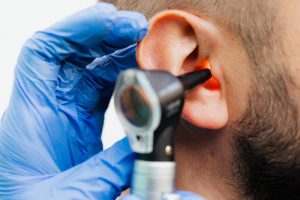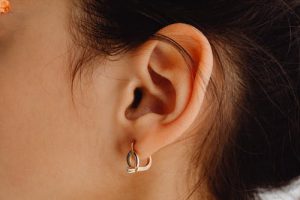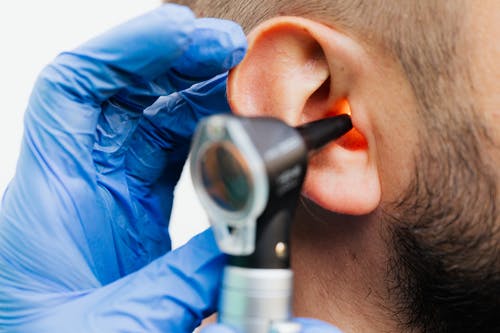Table of Contents
3 Hearing Impairment effects: Cognitive, Social, Psychological
It has long been a proven fact of a direct connection between hearing loss and depression, social and emotional isolation, dementia, etc.
Let’s talk about them in more detail.
As people get older, not only their hearing is impaired, but their mental abilities also decrease.
Senile hearing loss affects a decrease in the quality of life, which in some cases leads to a loss of orientation in space, a delayed reaction to danger, an increased risk of falls and social isolation, memory impairment, and an overall decreased performance.
The stages of Hearing Loss
At the initial stage of an hearing loss, the human brain is still able to conjecture and fill in “verbal voids”, at later stages this is no longer possible.
Negative experience of communicating with normally hearing people who are reluctant to come into contact with the hearing impaired, increased emotional vulnerability can lead to a decrease in social activity.
All this increases the risk of developing mental illness – depression and phobias. Social alienation contributes to the emergence of depression, fear and self-doubt. Therefore, many researchers associate hearing loss with memory impairment and dementia.

Depression and fear as a consequence of hearing loss
Severe hearing loss has been scientifically proven to increase the risk of depression, regardless of age, gender, location, medical history and income.
11.4% of people with severe hearing loss complain of depression, while only 5% of people with normal hearing experience this problem.
Hearing loss in patients with severe hearing impairment can also trigger panic attacks. Even a small hearing loss increases the likelihood of panic attacks by 32%, with severe hearing loss, these rates are increased to 59%.
The duration of hearing loss also affects the level of fear and depression: the longer a person lives with hearing loss, the more pronounced both of these diseases are.
Almost every patient is able to overcome panic attacks and anxiety, negative emotions. This is not as difficult as it might seem at first glance.
A patient just needs to set a goal and follow the advice of psychologists. The most effective recommendations of specialists that can be applied at home.
| How to overcome panic attacks? | What to do? |
| 1.Discuss your fears with your loved ones | There is nothing better than sharing your concerns with someone you trust.
This can be a close relative or friend to whom you can open your soul. Tell him what worries you and listen to the opinion of the interlocutor. Very often, after such a conversation, a person begins to relate to his problem more calmly. |
| 2.Give your fears and anxieties a certain amount of time. | You won’t be able to keep your experiences in check all the time.
You don’t need to do so. Set aside 20-30 minutes for them every day. During this time, let your imagination paint the scariest pictures. Unleash your anxiety, surrender to it completely. Don’t analyze your emotions, just relive them. When the allotted time is over, return to your normal activities. If anxiety begins to overwhelm you during the day, just write down the thoughts that bother you on paper, and in your next allotted time you can get back to them. |
| 3.Chat with people | If you feel panic attack is beginning to dominate you, don’t sit alone. Go to a crowded place – cinema, theater, concert or exhibition or simply meet your friends.
Give preference to live communication, but if this is not possible, do not neglect talking on the phone, Skype, and correspondence on the Internet. |
| 4. Laugh more | Bring more humor into your life. Watch comedies or humorous shows, read anecdotes, search the Internet for various funny jokes.
So you can laugh enough, relieve tension and forget about your worries for a while. |
If all of the above methods of dealing with anxiety and panic attacks have not worked out, it is best to seek help from a psychologist or psychotherapist.
Often, the roots of increased anxiety lie so deep in your subconscious that you cannot find them on your own.

The task of a psychologist is to help a person understand the causes of fear, remove them from the subconscious and teach him to overcome anxiety.
A specialist will help you deal with your fears and provide helpful recommendations.
You can also try to include vitamins and supplements to your nutrition. Magnesium is macro element, the deficiency of which is associated, among other things, with a lack of vitamins of group B.
This condition is characterized by increased fatigue, irritability, low mood, anxiety and even panic attacks.
The need for this element per day is 350-800 mg, while it is known that 25-30% of the population receive less magnesium from food or with supplements.
Check out more about this macro element here and Magnesium supplements to buy Here.
- It is also important for bone structure and is involved in muscle contractions and nerve impulses.*
- Vegetarian-friendly caplets provide you with an excellent source of Magnesium.
- These statements have not been evaluated by the Food and Drug Administration. This product is not intended to diagnose, treat, cure or prevent any disease.
- During the summer months products may arrive warm but Amazon stores and ships products in accordance with manufacturers’ recommendations, when provided.
Emotional isolation leads to psychosis and paranoia
A meta-analysis of epidemiological studies has shown that hearing loss increases the risk of hallucinations, visions, psychosis and paranoia.
Social isolation and loneliness, which are late consequences of hearing loss, are risk factors for the development of psychosis. In addition, verbal misunderstandings lead to misinterpretations of social cues and informational content of speech, which can lead to paranoid states.
When most of the information obtained in the course of communication is dropped or minimized due to hearing problems, it becomes difficult to understand what emotions the interlocutor is experiencing and in what state of mind he is.

Difficulties that arise in determining the localization of sound, or the appearance of incomprehensible rustles, can also provoke the appearance of visions.
Dementia and cognitive impairment
Many studies have shown that hearing impairments are more likely to develop dementia. Moreover, hearing impairment is a direct prerequisite for the development of dementia.
A recent systematic meta-analysis traces the relationship between senile hearing loss and significant decline in all cognitive domains, as well as an increased risk of cognitive impairment and dementia.
For mild hearing loss, the risk of dementia doubles; average hearing loss increases the risk threefold and, in severe cases, five fold.
For patients with dementia it is necessary to establish a clear work of the brain centers responsible for the regulation of the nervous system. These mental activities will definitely help to the patients with dementia…
What Causes the hearing impairment?
Inflammation, vascular disease, and other systemic neuron degenerative processes can lead to both hearing loss, depression, and cognitive impairment.
This is due to a functional disorder of the central nervous system. Thus, an imaginary causal relationship of these phenomena may arise.
It has been proven that structural and biochemical changes in the brain cells and the connections between them lead to inhibition of our brain functions.
Based on this, the ability to perceive speech in difficult communication situations (for example, the presence of extraneous sounds) deteriorates.
According to this hypothesis, hearing impairment and mental performance are considered separately from each other as independent areas due to a third factor.
Read More

